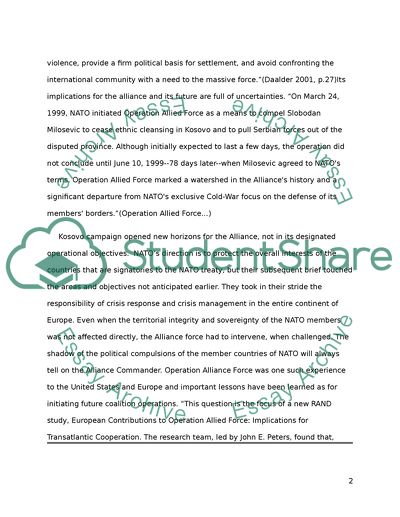Cite this document
(“NATO as peacekeeping force in KOSOVO Essay Example | Topics and Well Written Essays - 3000 words”, n.d.)
Retrieved de https://studentshare.org/politics/1560545-nato-as-peacekeeping-force-in-kosovo
Retrieved de https://studentshare.org/politics/1560545-nato-as-peacekeeping-force-in-kosovo
(NATO As Peacekeeping Force in KOSOVO Essay Example | Topics and Well Written Essays - 3000 Words)
https://studentshare.org/politics/1560545-nato-as-peacekeeping-force-in-kosovo.
https://studentshare.org/politics/1560545-nato-as-peacekeeping-force-in-kosovo.
“NATO As Peacekeeping Force in KOSOVO Essay Example | Topics and Well Written Essays - 3000 Words”, n.d. https://studentshare.org/politics/1560545-nato-as-peacekeeping-force-in-kosovo.


